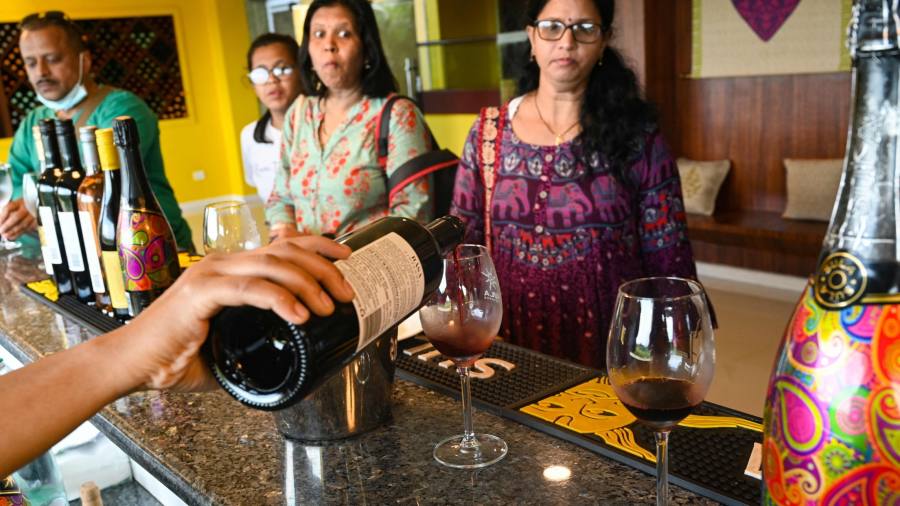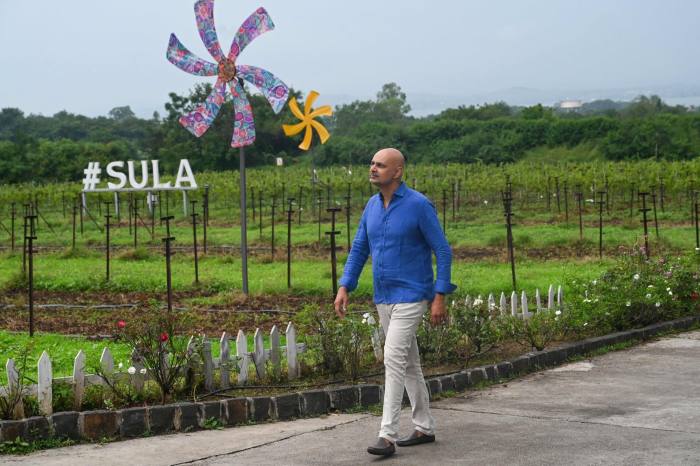
India’s biggest winemaker Sula Vineyards began its initial public offering to retail investors on Monday, as they seek to capitalise on a rising taste for wine among the country’s growing middle classes.
An Abu Dhabi sovereign wealth fund and the New York State teachers’ pension fund were among institutional investors that bought shares in the offer to anchor investors last week, ahead of Sula’s debut on the Indian stock market next week.
Sula’s almost Rs10bn ($121mn) share sale marks a coming of age for India’s budding wine industry, which struggled for years to change customer tastes and to win acceptance from Indian state-level authorities.
Valuing the company at Rs30bn, the offering represents a payday for existing shareholders, including Belgian family investment group Verlinvest, which bought into Sula in 2010 and will retain a significant stake. Pricing shares from Rs340 to Rs357, the company is not issuing fresh equity.
The Abu Dhabi Investment Authority was Sula’s biggest investor in the roughly one-third anchor allocation, snapping up 13.9 per cent of the shares on offer, followed by Goldman Sachs, taking 12.2 per cent, and another 1.74 per cent on behalf of the New York state teachers’ pension fund it manages.
Maharashtra-based Sula is India’s dominant vintner, commanding more than a 50 per cent share of India’s 2.5mn case a year wine market with a number of brands.
Founder and chief executive Rajeev Samant said he felt “a little bit of trepidation” at finally going public 26 years after planting his first vines, but a strong post-pandemic bounceback and investor interest in betting on Indian consumers had encouraged the company to make the offer.
Samant said wine drinking was relatively minor in India compared with the rest of the world and “there’s only one way to go now”.
Several states in India ban alcohol, while others impose steep excise duties and marketing restrictions. But Maharashtra and Karnataka, India’s largest grape-growing regions, take a “fairly benign” approach to taxing wine because of its benefits for farmers, said Samant.
“Wine is in a different place in the journey compared to spirits and so we’re at a very nascent phase,” Samant said, arguing that after years of boom and bust, the industry had come to “a more stable place”.
Samant has opened popular vineyard hotels in Nashik city, even hosting music festivals, which “has been so important for our business and popularising wine in a country where nobody knows about wine”.
The editor of Sommelier India magazine Reva K Singh compared Samant to Robert Mondavi, a pioneer winemaker in California’s Napa Valley. “His impact has been huge,” said Singh.

After sustaining a Rs19mn post-tax loss for its financial year ending March 2020, Sula made a Rs521mn post-tax gain for the year ending March 2022 as housebound drinkers bought more wine during the coronavirus pandemic lockdowns. The company also curbed borrowing from Rs3.7bn in 2020 to Rs2.3bn in 2022.
Sula’s inconsistent results were partially a result of India’s winemaking not being “a stable state industry”, said Ankur Bisen, head of consumer, food and retail at consultancy Technopak.
Risks remain, according to analysts, including tariff reductions on imported wines that limit advantages over foreign winemakers. Samant said a recent free trade agreement with Australia, which had brought down tariffs on Australian wines, was one “our industry can live with”.
Sonal Holland, a wine expert in India, said: “Sula wines have always been the affordable easy drinking category. However, in more recent years I would give them a bit more credit for building a premium offering . . . they have made solid attempts to make better quality wines for the more discerning consumer.”